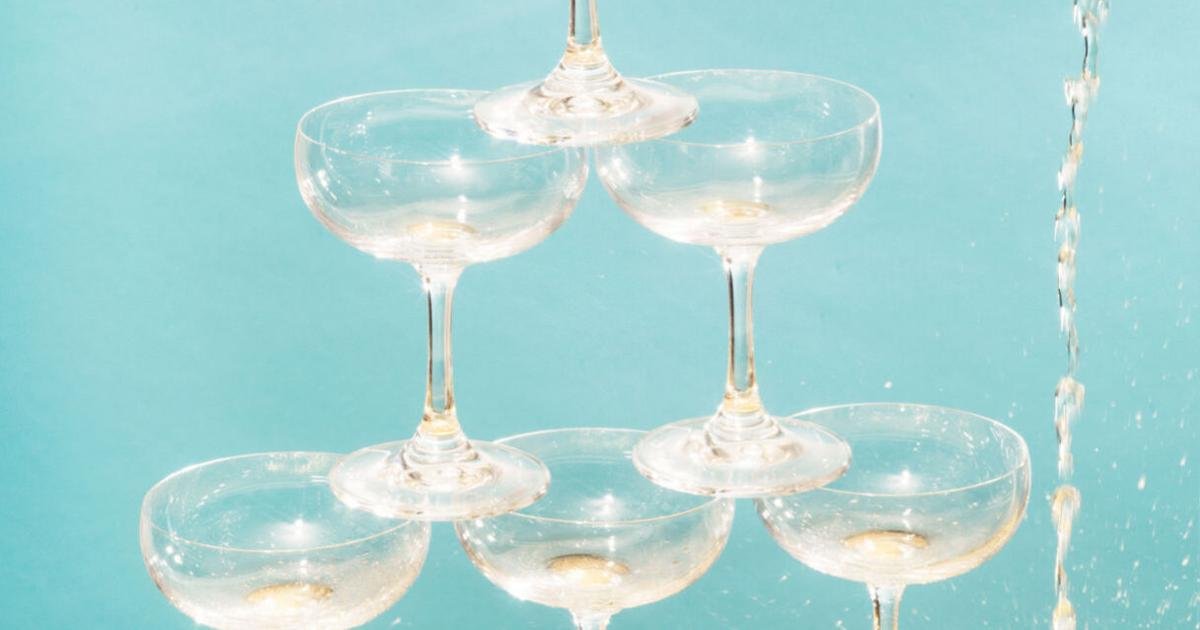'Sober Curious'? How to embrace mindful drinking | Lifestyle | phillytrib.com – The Philadelphia Tribune
You have exhausted your free article views for this month. Please press the “subscribe” button below and see our introductory price of $0.10 per week for 10 weeks. Otherwise, we look forward to seeing you next month.
Please log in, or sign up for a new account to continue reading.
Thank you for reading! We hope that you continue to enjoy our free content.
Thank you for reading the Tribune. If you would like to enjoy unlimited access, click the Subscribe button and select an offer. If you are already a subscriber, Register to activate your digital account.
Thank you for reading the Tribune. If you would like to enjoy unlimited access, click the Subscribe button and select an offer. If you are already a subscriber, Register to activate your digital account.
Glasses and champagne spilling in New York, Dec. 15. A growing moderation movement harnesses strategies from meditation to cut back on alcohol. — New York Times/Eric Helgas
A wine glass in New York, Dec. 15, 2021. A growing moderation movement harnesses strategies from meditation to cut back on alcohol. — New York Times/Eric Helgas
Glasses and champagne spilling in New York, Dec. 15. A growing moderation movement harnesses strategies from meditation to cut back on alcohol. — New York Times/Eric Helgas
A wine glass in New York, Dec. 15, 2021. A growing moderation movement harnesses strategies from meditation to cut back on alcohol. — New York Times/Eric Helgas
Dry January — or Drynuary, for the initiated — offers your body and mind a chance to reset and reflect after the seasonal bloat and weariness. For a vocal movement, the approach of scaling back drinking to live more fully in the moment can, and should, happen year-round. Rather than cutting out alcohol entirely, though, a growing number of people are “sober curious,” exploring elements of a booze-free lifestyle without fully abstaining.
“Mindful drinking,” a phrase and philosophy that brings the self-reflection of meditation to a glass of wine or beer, has become increasingly commonplace in recent years, said Rosamund Dean, a journalist in London who published a book based on the term in 2017. She wanted to become more intentional about her relationship to drinking, she said, instead of seeing alcohol as a habit or a crutch.
“It was going to the work event where there was nasty, cheap white wine and knocking it back,” or “putting the kids in bed after a busy day and cracking a bottle open,” she said. “It’s the drinking you do without really thinking about it.” Mindful drinking, by contrast, means “bringing awareness to your behaviors in terms of your decision to drink alcohol:” for example, tallying how many cocktails you consume in a given night, or paying close attention to why, where and when you’re drawn to drinking.
This moderation mindset might appeal to people searching for ways to scale back on troubling habits they developed during the pandemic. Studies have shown a dramatic increase in problematic drinking over the past year, especially among women.
As the pandemic slogged on, “we had a real spike in people coming to us,” said Millie Gooch, who founded the Sober Girl Society collective in 2018. The community connects sober and “sober curious” women for events like “boozeless brunches” and virtual breakfast discussions.
Ruby Warrington, a writer in New York, started using the term “sober curious” five years ago. At the time, she said in an interview, her drinking habits appeared to be under control: She never blacked out or even drank more than two nights in a row. But she drank more than she wanted to; she didn’t feel able to say no. Warrington craved a middle-ground approach to drinking: the ability to interrogate her relationship to alcohol without ending it completely. In 2018, she published “Sober Curious: The Blissful Sleep, Greater Focus, Limitless Presence, and Deep Connection Awaiting Us All on the Other Side of Alcohol,” articulating the philosophy behind what she calls “choosing to question” her impulse to imbibe.
Warrington said that interrogating one’s drinking habits often leads people to adopt more mindful drinking strategies.
There is limited scientific evidence on the efficacy of using mindfulness to moderate drinking behaviors. A 2017 study of 68 heavy drinkers in Britain found that those who received 11 minutes of mindfulness instruction reduced their alcohol consumption significantly the next week. This “microdose of meditation” may have helped participants regulate their emotions, encouraging them to rely on mindfulness when they might otherwise turn to alcohol to cope with stress, said Sunjeev Kamboj, a psychology professor at University College London and the lead author of the study.
The mindful drinking approach also draws on strategies similar to cognitive behavioral therapy, a psychological intervention used to address depression and anxiety, said Kenneth Stoller, associate professor of psychiatry and behavioral sciences at Johns Hopkins University School of Medicine. By encouraging people to identify the impact alcohol has on their thoughts, feelings and behaviors, mindful drinking can be an effective tool for people trying to reduce their alcohol consumption, he said, but not for anyone with a severe drinking problem or alcohol-use disorder.
Some experts and “sober curious” veterans offered tips for becoming more thoughtful about alcohol.
Stop and Reflect
Warrington recommends that people interested in cutting back remove alcohol from their lives for an extended period, typically 30 to 100 days. That hiatus is an opportunity for reflection, she said. Ask yourself about the role that alcohol plays in your life and the moments in your daily routine — a weekend dinner with friends, a TV episode before bed — that most make you crave it, and find other ways to fill in the gaps.
Stoller advises thinking through what you like and don’t like about drinking. Is it the taste of alcohol that draws you in? The bodily sensation of a buzz? Identify the amount of alcohol you typically consume to induce a certain effect, and then consider the facets of drinking you enjoy less, like hangovers or the sense of losing control. Articulating these aspects of your drinking life can help you form realistic guidelines for cutting back, he said.
Make a Plan
Drinking narrows our focus on the world, Stoller said, creating what some psychologists call “alcoholic myopia” — we focus only on the present moment. That’s why it’s crucial to establish a plan for mindful drinking ahead of time, he said. This can include drinking with a friend who’s also practicing mindful drinking, making sure you eat while you’re drinking and asking the bartender to use half the amount of alcohol in a cocktail. These tricks will slow the rate of alcohol entering your system, he said, which can help you be more intentional about the drinks you do choose to consume.
Dean sticks to what she calls the rule of three: three drinks or less, no more than three nights each week. Often, she ends up drinking less than that, she said, and the hard limit prompts her to savor each beverage.
The New York Times
Your comment has been submitted.
Reported
There was a problem reporting this.
Log In
Keep it Clean. Please avoid obscene, vulgar, lewd, racist or sexually-oriented language.
PLEASE TURN OFF YOUR CAPS LOCK.
Don't Threaten. Threats of harming another person will not be tolerated.
Be Truthful. Don't knowingly lie about anyone or anything.
Be Nice. No racism, sexism or any sort of -ism that is degrading to another person.
Be Proactive. Use the 'Report' link on each comment to let us know of abusive posts.
Share with Us. We'd love to hear eyewitness accounts, the history behind an article.
President Biden outlines plans to expand coronavirus testing sites across the country and deploy federal resources to strained hospitals, as the omicron variant drives a fresh wave of infections.
We’re always interested in hearing about news in our community. Let us know what’s going on!
Obituaries and death notices are paid. The editorial department may decide to cover someone’s passing.
Sorry, there are no recent results for popular videos.
Sorry, there are no recent results for popular commented articles.




